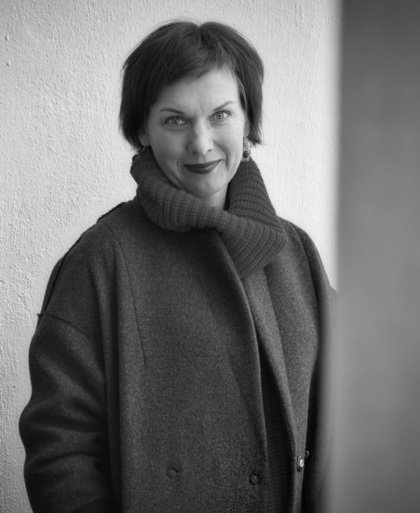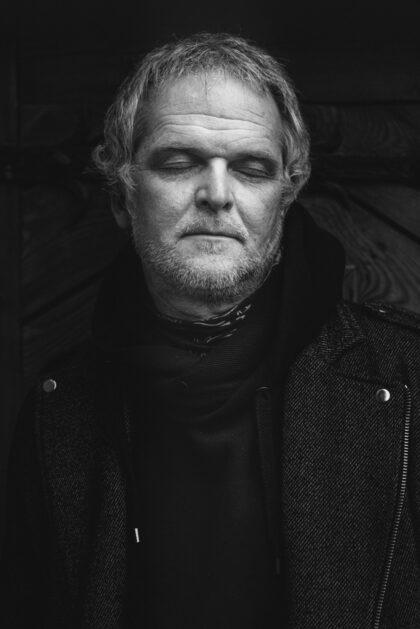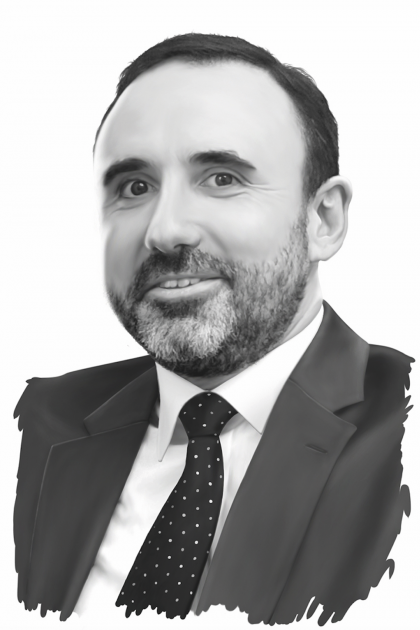Donatas Puslys
Columnist
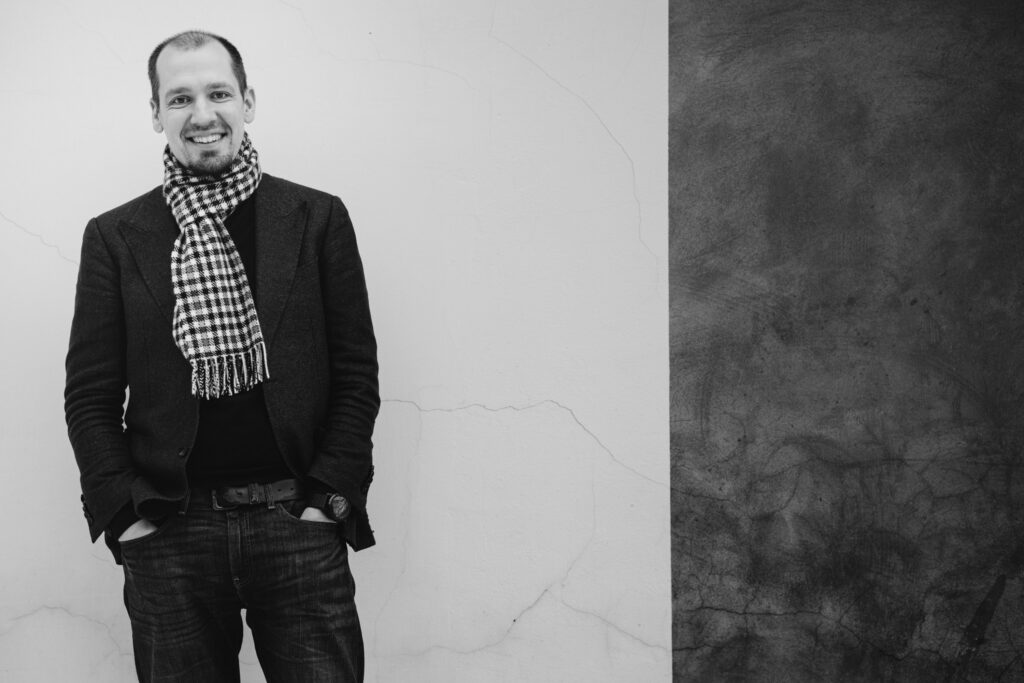
In times of crisis, you can often hear the saying that the world will never be the same again. Some are considering how our daily lives and habits will change at work or leisure – cultural activities, travel, and so on. Others question the impact on civil society and the relationship between citizens and their government. Yet another group is discussing the long-term economic consequences. Others are drawing our attention to the changing world order and the impact of the crisis on multilateral international institutions. Still others argue that creating scenarios of this type has already reached a level of intellectual overproduction and is simply an attempt to grab and exploit the attention of an agitated and anxious society. True, there are those who argue that as external circumstances change, man himself remains essentially the same e.g. by reading the works of Shakespeare or others whose works were written centuries ago, we are able to recognize ourselves. In any case, all of these reflections about the future reflect the human desire to make tomorrow predictable, manageable, and as being created through our own conscious efforts, thereby emphasizing that we are not merely hostages of destiny.
Masks and True Faces
However, I would like to discuss not the future, but the present. What did the pandemic reveal about our society? After all, there is an old saying that “a friend in need is a friend indeed.” Others maintain that masks come off during a crisis and true faces are revealed. In this context, I remember the diary of partisan Lionginas Baliukevičius-Dzūkas, in which he asked without bitterness about where the people – who before the war and occupation of independent Lithuania had previously expounded to everyone how to love their homeland – had disappeared. Did they change their minds or their positions? Or maybe they loved their positions, social status, privileges and power more than they loved Lithuania itself.
There are moments that are crucial and become a test of our values – those times when declarations are not enough and we need to demonstrate that our fidelity to our values may require paying a price.
Donatas Puslys
Yes, life today is radically different from what the Freedom Fighters had to go through. After all, there is truth to the fact that an ordinary person can become a hero simply by staying at home. I believe that the metaphors of war sometimes used by politicians or the media in the fight against the pandemic are not intended to show the actual situation so much as to disclose their attitude towards at least a part of our society that they believe will not be able to understand the seriousness of the situation if rational arguments are used, rather than emotionally charged ones. Of course, sometimes it’s just the messengers’ own desire to make themselves sound more important, and, in the case of the media, unfortunately, it’s often just a desire to generate clicks without thinking about the consequences that lessen our values.
So, without getting into what awaits us tomorrow, I will focus on the here and now and explore the question of what both the first and second waves of the pandemic revealed about our civil society – what it is and what values are the most important ones in the face of a crisis? How does the current situation allow us to rethink the role of culture?
Mastering Nature through Culture
Let’s take a step back in time. The author of In the Shadow of Tomorrow: A Diagnosis of the Modern Distemper, Dutch historian Johan Huizinga talks about the decline of Western culture, which is visible not only in countries ruled by totalitarian ideologies and regimes, but also in democracies. According to Huizinga, culture means mastering nature, but man tends to forget that it is important to control not only the sometimes hostile and at other times bountiful gifts of nature, but also to control one’s own nature. Huizinga defines culture as the state of a community “when the domination of nature in the material, moral, and spiritual realms permits a state of existence which is higher and better than the given natural conditions,” a state of “harmonious balance of spiritual and material values.”
What do the words of this historian tell us today? It seems to me that the discussion about managing the pandemic is not just about controlling the external forces of nature through vaccines and regulations, but also about the task of managing our own nature by recognizing our civic responsibility and duty to others.
When I say, “mastering one’s own nature”, I am not talking about automatic obedience to regulations without asking questions about the necessity of one or another measure, compliance with human rights, and so on. I am talking about a simple concern not only for ourselves, but for the people around us – their safety, health – not only physical but also mental – their well-being and so on, the norms that underpin our communal life. Huizinga points out that a higher state of culture can be achieved by society without new technology or molding but cannot do so by rejecting values such as compassion. If you have the equipment, but don’t have absolute values, one will simply remain a well-equipped barbarian who poses a threat not only to himself, but to others and the environment as well.
The concept of culture as a fostering of the human spirit is also seconded through the philosophy of poet, social activist, publisher, teacher, and theatrical performer Krzysztof Czyzewski, founder of the Borderlands Foundation of Arts, Cultures and Nations in 1990 in the small town of Seiniai near the Polish border with Lithuania. He connects with Huizinga in his view that we need to increase our own cultural activities, which in our day have suffered at the hands of passiveness, where we have become only consumers and customers, but not participants. In his book, A Small Center of the World, Czyzewski envisions culture as the creation of a connective tissue formed “on fragile frontiers full of broken bridges, memories of trauma and long-standing conflicts, differing national mythologies, and myths about freedom that are offensive to their neighbors.” In other words, culture and the values it embodies can thrive only through creation and require an active commitment, because otherwise, as Czyzewski vividly illustrates, those delicate frontiers will remain a source of conflict, an open wound exploited by all manner of manipulators.
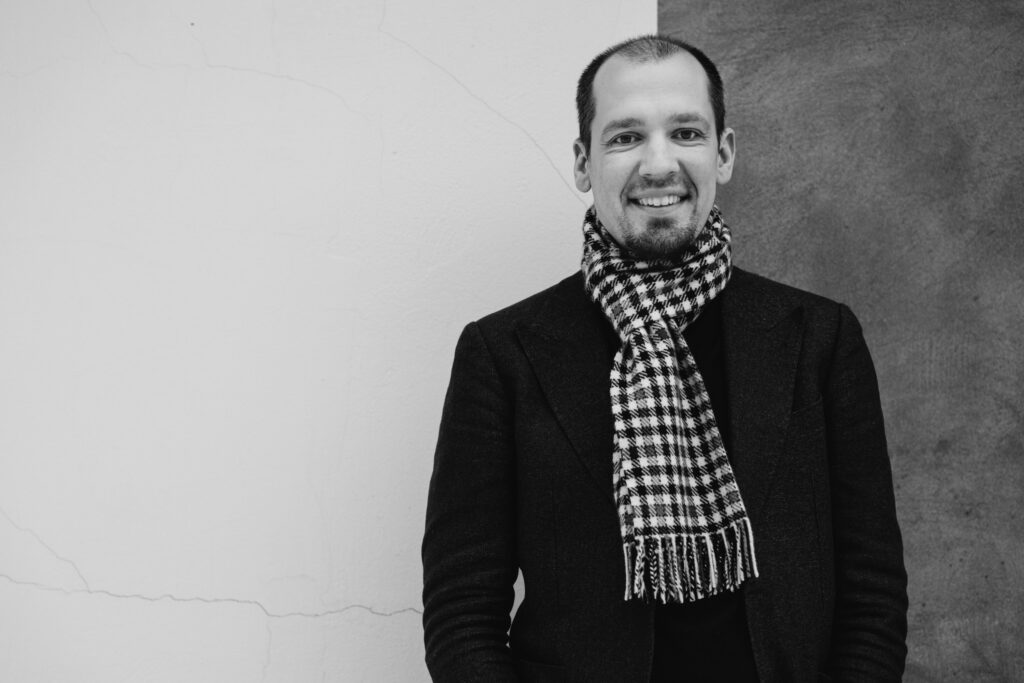
It is very important to understand this, bearing in mind that the pandemic has also turned into an infodemic.
Donatas Puslys
Disinformation feeds on unresolved problems, mutual mistrust, and confrontation. The currently popular term post-truth does not mean that people have completely stopped believing in the truth. On the contrary, they may continue to fanaticallybelieve in their own truth in spite of all the facts. According to highly respected Rabbi Jonathan Sacks, all of this is encouraged by the formation of information bubbles, when what was once called broadcasting i.e. the ability of the media to reach a common factual basis, whatever our different views on how we interpret it, has become narrowcasting, with messages being broadcast to very specific narrow audiences that become separate islands not only with their own interpretations but also with their own facts. Both Huizinga and Czyzewski discuss the mission of culture as seeking to unite these islands by cultivating and elevating the human spirit to a higher level that is able to see not only its own desires, but also the needs of society and especially its most vulnerable.
Where am I going with these references to the thoughts of Huizinga and Czyzewski? I am leading towards the fact that it is very important to realize that society can stand the test of time more successfully if it is dominated not only by a concern about oneself, but also by values such as solidarity, compassion, trust and self-confidence that encourage us to seek ways to help the most vulnerable in our society.
Solidarity
Let me begin with solidarity. The philosopher and priest Joseph Tischner used the Biblical parable of the Good Samaritan to illustrate this concept. He was prompted to begin exploring the question of solidarity by his desire to look into the future and consider what would happen in his native Poland after the end of Solidarity, which was the first independent trade union that emerged as a grass roots movement in the early 1980s and went on to defeat the communist dictatorship in the late 1990s. Tischner emphasized that in times of oppression, a common enemy serves as an additional incentive to rally together in spite of any differences. Intellectuals became close with the workers, and the Church made contact with the left. However, he asked, what will happen when that common enemy disappears? After all, not every ‘we’, not every ‘together’ denotes solidarity. In other words, solidarity entails not only knowing what you are against or to have things in common – such as the same language, religion, and so on. It is here that the parable of the Good Samaritan serves to illustrate the point. The story is about a man who after being beaten and robbed has been left half-dead by the side of the road and is ignored by a Jewish priest passing by and then a Levite, but a hated Samaritan stops and helps him. Tischer also cites St. Paul’s Letter to the Galatians that exhorts us to “bear one another’s burdens, and thus you will fulfill the law of Christ” thereby defining solidarity as bowing down to those who are weaker or in trouble in order to alleviate their suffering.
Principles of Charity
Rabbi Sacks has set out the levels of charity defined in Judaism in one of his books. After all, there are different types of solidarity. One is simply to give money unwillingly or just to feel better and quite another to bend down to help someone else stand on his or her own two feet. Just donating money is not as important as giving your attention, time and a bond which would stand as testimony that you look upon the other person not from somewhere way above but acknowledge their human dignity and thereby show that the person is not forgotten or that no one cares about him or her. After all, there is not only material poverty, but also the poverty of loneliness when a person is socially isolated. There is a reason that charitable organizations, such as the Knights of Columbus, value not only funds donated, but, most of all, the time that a member dedicates to charitable activities. Devoted time allows one to invest not just money into a relationship, but also your work, attention, care and concern. All of this contributes towards creating a more sustainable relationship. Without under-rating all of the important fundraising initiatives during the pandemic, it’s important to emphasize initiatives that have called on volunteers to take care of poorer or lonely people and those at risk by buying and delivering food, taking phone calls and reaching out to the lonely, those who encouraged people to volunteer where extra hands were most needed. It was these initiatives that made a very significant contribution to the creation of that cultural connective tissue where it seemed to have fissures.
Responsibility
All of these examples of civil society’s activism embody an understanding of responsibility that is very important. The highly respected Rabbi Jonathan Sacks referred to it in his book Morality: Restoring the Common Good in Divided Times by identifying a problem inherent in Western societies – the shaking off of moral responsibility by placing it on the shoulders of the state. According to him, it is becoming increasingly difficult for us to understand why there may be things we want to do and that we can financially afford to do, that are legal, but we should still not do them because they are wrong or reprehensible. If the market provides us with such an opportunity, why shouldn’t we take advantage of it, especially if morality is just relative or a point of view? However, according to Sacks, by reducing moral choices to the economy, we tend to shift the consequences of our choices onto the shoulders of the state. Bad choices bring bad consequences – ruined relationships, abandoned children, poor mental health, ruined lives. However, the thinking still is that all should be taken care of by the state, and as its role grows, so does the need for community volunteering to address its own challenges. A welfare state is emerging that perfectly meshes with a passive society.
But the essential thing here is that a free society is a moral achievement. It is not enough to create an orderly institutional mechanism and decide on necessary norms. We also need virtuous citizens who are determined to take responsibility for the fostering of that freedom for the common good. Freedom that is only exercised without making a contribution yourself starts to disappear as the number of fare-dodgers continues to grow. Sacks asks a fundamental question of each of us – to what extent do we not only perceive the connection between our actions and their consequences, but also take responsibility for them? It seems to me that, during the pandemic, we saw examples of both: model demonstrations of responsibility as well as a complete lack of empathy and doing only what one wants, while leaving the consequences to be dealt with by health care workers and authorities on the brink of burnout.
Intermediate Institutions and Trust
Still, in order for citizens to discern their own roles, intermediate institutions and social trust are important. Sacks refers to the various institutions of civil society, which fill in the space between the individual and the state intermediate institutions. They encompass a variety of civic organizations, NGOs and clubs that perform the function of empowering an individual, because, as a banner in my high school newspaper in Panevėžys once lauded, “Alone we are weak, together we are powerful”. These civic organizations bring individuals together into networks that allow them to join forces for new initiatives, and they help to develop the ability to act for which practical knowledge is just as important as theory. Civic organizations also strengthen trust, which, according to the report of the Nordic Council of Ministers’ Office in Lithuania Trust: Nordic Gold, can be defined as the degree to which people tend to trust strangers. It can be said that the degree of trust reveals our understanding of human nature. If I think that everyone is money-grabbing and that human nature is inherently corrupt, then it is probable that I won’t be inclined to trust. It is not for naught that the Nordic countries call trust their gold because it brings both economic and social benefits. The study stated that, “People who are highly competent are more likely to think that they can take better control of their lives and make better use of the opportunities that life has to offer. Trust is also seen as an important factor in promoting social activity, reducing crime and increasing individual happiness,” the study stated. Thus, these intermediate groups of civil society build trust and also depend on it themselves, as people with a higher level of trust will be more inclined to engage in a common cause than to distance themselves solely for their own interests.
In this context, it is important to look at the data of the Civic Power Index prepared by the Civil Society Institute, which shows how many Lithuanian citizens still associate civic activities with risks. 57.1 percent consider it very likely or likely that citizens who currently initiate or actively participate in civic initiatives will be suspected of doing so for self-serving purposes. 51.9 percent think that these people are highly likely or likely to be attacked or publicly slandered. 50.1 percent believe that it is very likely or likely that threats will be made against those involved in civic activities, 48.3% consider it very likely or likely that they will lose their jobs. It can be hypothesized that all of this indicates a lack of trust and a relatively low level of involvement in civic activities.
Thus, in view of the present challenges, we can only hope that the pandemic situation, which has raised the need for civic involvement, especially through volunteering, will contribute towards overcoming those fears and mistrust.
Donatas Puslys
Once involved in civic activities, people will finally see that many of their fears were unfounded. Even if some of those risks prove to be real, who else, if not the citizens themselves, can take steps to change the situation? After all, it is easy to be a citizen when it costs nothing, but much more difficult when faced with the question of what is more valuable – those values that invite participation in civic activities despite risks, or the relative peace of mind that comes from abandoning those values and choosing only to espouse them, but not to take any action based on them.
Overcoming the Infodemic
The issue of trust is also crucial to tackling the so-called infodemic that arose during the pandemic. According to Cailin O’Connor and James Owen Weatherall, authors of The Misinformation Age, initiatives to reduce the spread of propaganda and false news, as well as open channels that provide a reliable flow of information, are more doomed to failure if there is a lack of trust between those heading up the initiative and their target audience. In a crisis, this is a particularly difficult situation because, as the philosopher Leszek Kolakowski points out in Mini-Lectures on Maxi Issues, “Many people need enemies at which to direct their aggression caused by frustration.” “After all, no one in the world lives totally followed by success, no one succeeds in realizing all of their ideas, everyone has experienced the bitterness of defeat, frustration, futile efforts. It is extremely useful for someone else to be responsible for my failures. <…> We absolutely need some unfriendly forces fighting against us with wicked and despicable intentions in order to protect ourselves from auto-aggression. From a psychological point of view, an enemy provides a good instinct for self-preservation,” writes Kolakowski.
Rabbi Sacks thinks along the same lines, writing that in a moment of crisis, man is tempted by a radical dualism, which makes us ask ourselves not what our own roles and responsibility are in this problem, but who is to blame for everything. Radical dualism divides the world into two parts – the good and the bad. The writer and semiotician Umberto Eco emphasizes that it is impossible to get by without an enemy – the need is an innate one for a quiet, peace-loving person. The Greeks had their barbarians, Christians – heretics, schismatics or atheists, democracies – authoritarian regimes, and the latter – liberals and cosmopolitans who scorn traditional values. What does Eco have in mind? He argues that there we should not pretend that we will live in universal brotherhood without enemies.
“Are ethics powerless against the ingrained need to have enemies? I would say that the application of ethics begins not when you pretend that there are no enemies, but when you try to understand them, to imagine yourself in their place,” he writes. Thus, ethics protects us from the dehumanization and demonization of enemies, from exceeding certain boundaries set by human rights, from the dismantling of democracy under the guise of fighting an enemy. Ethics, according to Eco, turns an enemy into an opponent with whom you can discuss, seek a consensus, and coexist. Ethics as a natural inclination to look for enemies can lead to a mastery of self and brings us back to what we have already heard in Czyzewski’s thoughts – to use culture as connective tissue so that the demarcation lines of our differences become not ones of resistance but provide a way to lean in towards each other in a space in which we can hear and understand each other. We can also call it fostering tolerance.
It goes without saying that, consciously or unconsciously, the spreading of lies, incitement of distrust and hostility that endanger other people’s health in the face of a pandemic, gives rise to a desire not to attack the untruths, but to make ad hominem attacks against everyone spreading the untruths without exception, thereby losing the chance to win back those who may have been simply misled and had no malicious intent.
It is precisely this group that needs media literacy training to help them selectively and critically evaluate information, to free them from bubbles filled with disinformation, and when talking to them, the most important thing is to understand what gaps or perhaps hurts have led them to take such a position.
Donatas Puslys
This is the only way that we can hope to achieve something, rather than contribute to attempts to turn society into a large bunch of hostile islands each surrounded with barbed wire.
History does not evolve according to a pre-determined scenario. Scenarios have always served to further attempts by fanatics to reorganize society as quickly as possible or as a way to shirk responsibility by believing that no matter what we do, things will turn out well in the end because an individual does not determine anything; everything is determined by processes. A pandemic, just like any challenge, is a crossroads where more than one path is possible. What is important is that the direction in which we turn is determined by us or, more precisely, by the culture of our society, where it is not enough to just manage the external forces of nature, but we also need to confront our own nature, which must be managed and spiritually elevated in order to embark on a better path that embodies our most important values.

